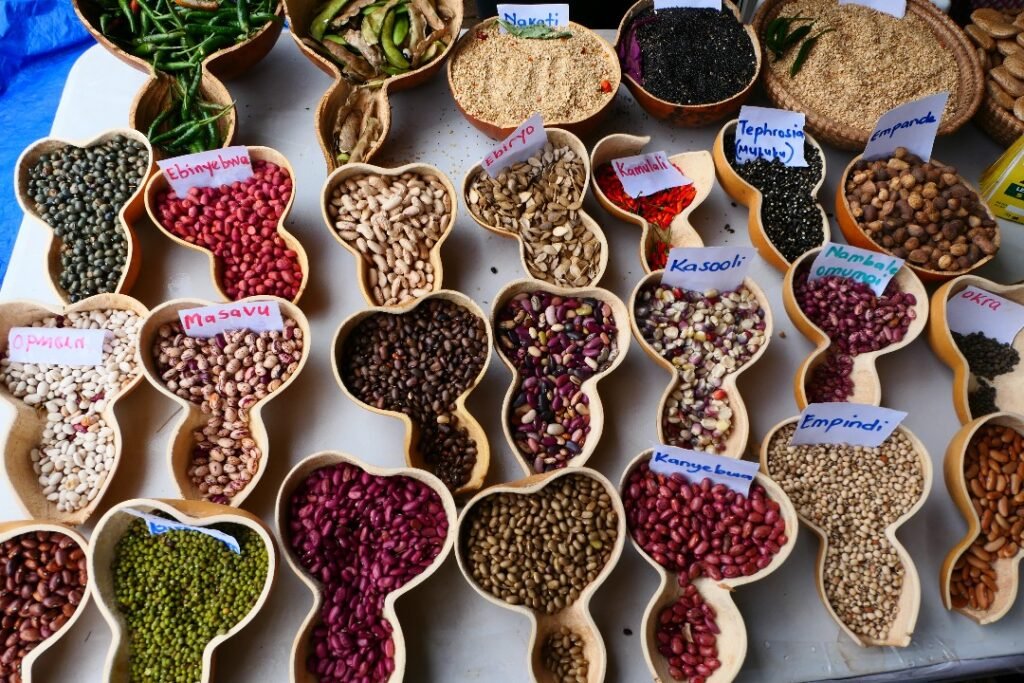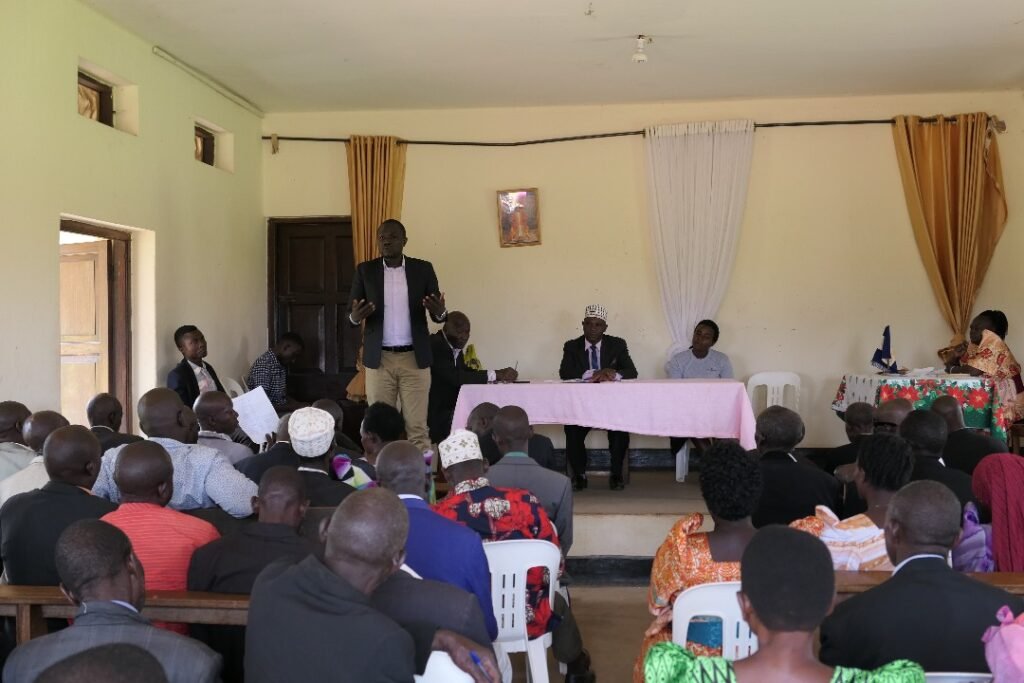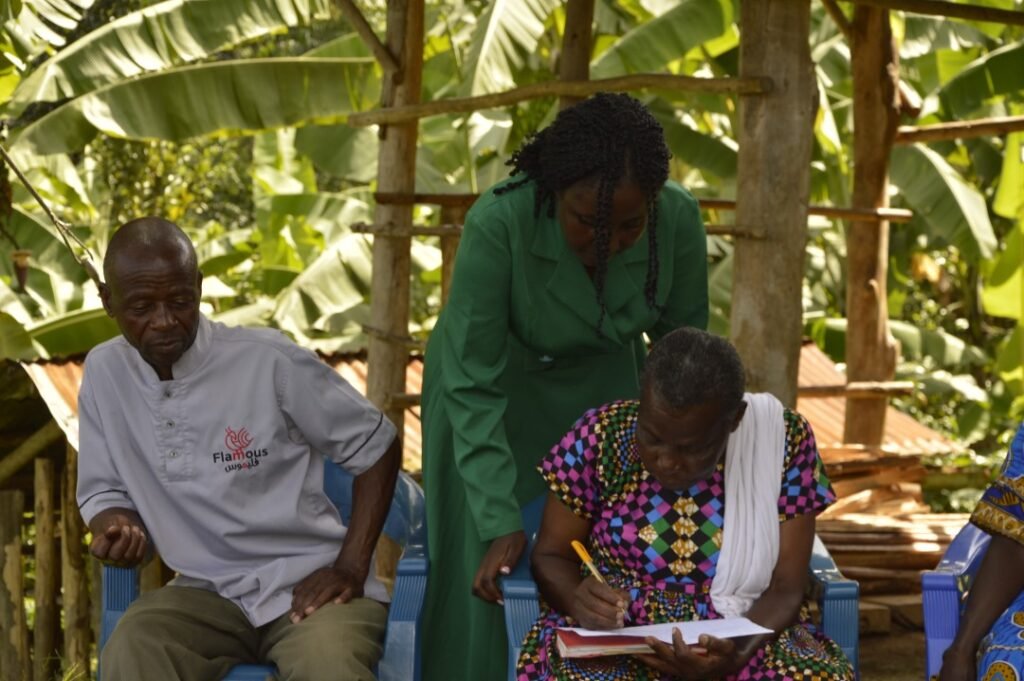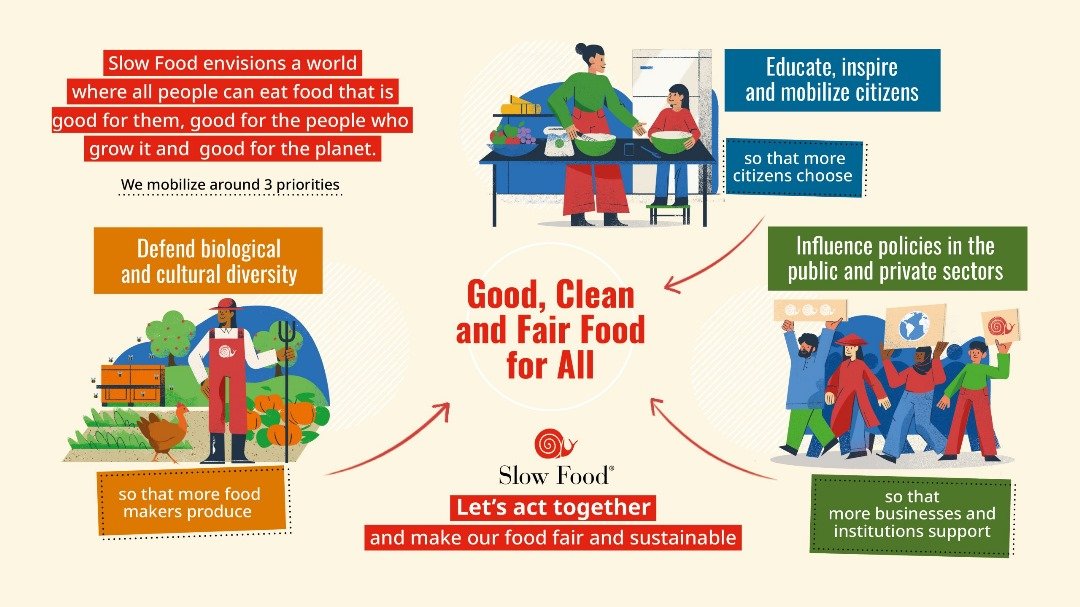Our Strategic Goals

In the pursuit of Slow Food Uganda’s overarching mission, the defense and promotion of biological and cultural diversity emerge as fundamental pillars anchoring our endeavors. These beliefs resonate deeply with our philosophy, embodying our firm commitment to safeguarding and celebrating the inherent richness of our natural and cultural heritage.
Uganda’s diverse landscapes and rich cultural heritage hold a treasure trove of biodiversity and cultural expressions, each playing a vital role in the well-being and resilience of our communities. Our advocacy and outreach efforts are carefully designed to highlight the complicated relationship between biological and cultural diversity, promoting a deeper understanding and appreciation of their interconnectedness.
In a landscape threatened by the encroachment of industrialization and monoculture agriculture, our role as custodians of biodiversity and cultural heritage is more critical than ever. Through targeted interventions and collaborative partnerships, we endeavor to raise awareness about the urgent need to protect these invaluable assets from the forces of homogenization and degradation.
Moreover, we recognize the symbiotic relationship between biological and cultural diversity, acknowledging that the preservation of one is intricately linked to the conservation of the other. By championing regenerative agricultural practices, such as agroecology and seed sovereignty, we aim to empower communities to cultivate resilient food systems that honor and sustain biodiversity and cultural traditions alike.
In essence, our commitment to the defense and promotion of biological and cultural diversity is not merely aspirational but rooted in a profound sense of duty to our shared heritage and future generations. Through concerted action and steadfast advocacy, we strive to forge a path towards a more sustainable, equitable, and culturally vibrant food system for all.
To measure the performance of this impact area, Slow food Uganda has underscored the results and the activities it will undertake to achieve the results below.

Within the context of Slow Food Uganda’s mission to transform the food system, the role of public education emerges as paramount. We recognize that effecting meaningful change necessitates more than just dissemination of information; it demands a comprehensive educational approach that empowers individuals with a deep understanding of food’s intricate dynamics.
Through our educational endeavors, we strive to brighten the interconnectedness between food, culture, society, and the environment. By delving into topics such as sustainable agriculture, biodiversity preservation, food sovereignty, and equitable access to nutrition,
we aim to equip individuals with the knowledge and tools to make informed choices and advocate for change within their communities.
Moreover, our educational initiatives serve as platforms for dialogue and reflection, fostering a culture of inquiry and collaboration. By engaging participants in discussions, workshops, and experiential learning activities, we create spaces where diverse voices can come together to explore alternatives and envision a more just and sustainable future of food.
In essence, education lies at the heart of Slow Food Uganda’s vision for transformation. By empowering individuals with the knowledge, skills, and inspiration to become active agents of their food systems, we believe we can catalyze a movement towards a more resilient, equitable, and nourishing food system for all.

Influence Public And Private Institutions Policy And Programs Towards Agroecology Aiming To Establish A Good, Clean And Fair Food System

Influence Public And Private Institutions Policy And Programs Towards Agroecology Aiming To Establish A Good, Clean And Fair Food System

Policy serves a strong foundation that guides how people, governments, and organizations work towards specific goals. It helps decide how resources are used and addresses the concerns of citizens.
From 2024 to 2028, Slow Food Uganda will focus on advocating for changes in policies and practices related to agriculture and natural resource management. Our advocacy will be based on evidence and tailored to Uganda’s unique social, economic, and environmental situation. We will analyze important issues and work towards sustainable food systems.
Our main areas of focus will include climate change, land management, agroecology, and food safety and nutrition. Our goal is to promote good, clean, and fair food for everyone in Uganda.
To measure the performance of this impact area, Slow food Uganda has underscored the results and the activities it will undertake to achieve the results below.

It is really important for Slow Food Uganda to make sure that the program is of high quality. This is not just something we want, but something we absolutely need. Program quality is like the foundation that determines if the program will be successful, have a positive impact, and last for a long time. It includes how well the program works, how efficiently it uses resources, how relevant it is to the goals, and how sustainable it is. This is all about making sure that the program achieves the desired results and meets the needs of the people it is meant to help.
Program quality plays a pivotal role in building trust, credibility, and legitimacy among stakeholders, including funders, partners,
beneficiaries, and the broader community. By consistently delivering high-quality services and achieving meaningful outcomes, programs can engender confidence and support, thereby attracting sustained investment and collaboration.
In this strategic plan, Slow Food Uganda aims to use high program quality to encourage learning, new ideas, and getting better over time. By using strong systems to monitor, evaluate, be accountable, and learn from our work, we can gather important information, find the best ways of doing things, and make changes quickly when needed. This helps us face new challenges and take advantage of opportunities as they come up.
During this strategic plan, we will continue to strengthen our governance systems, and realign our structures to effectively and efficiently deliver quality programs. Our target will encompass strengthening accountability and budget absorption, strengthen governance and operations structures and systems and strengthen and nurture strategic partnerships.




